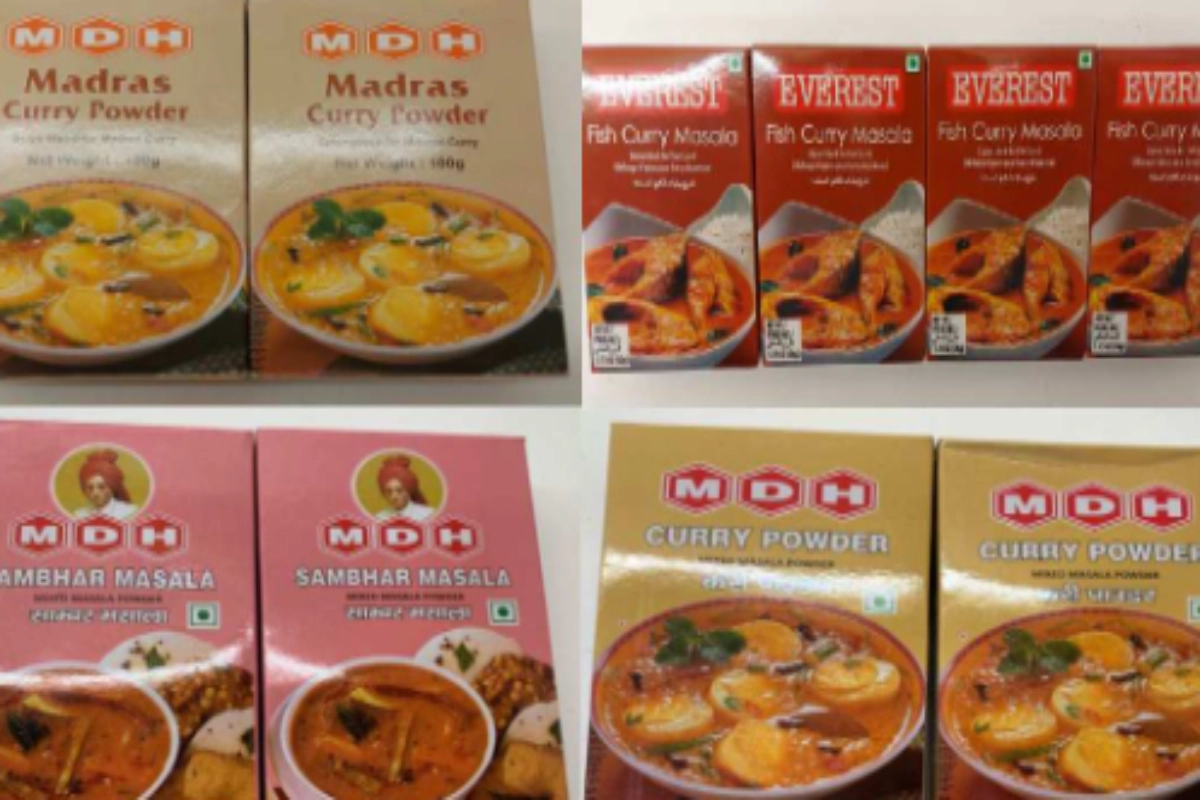MDH and Everest: The food regulatory body for Hong Kong, the Centre for Food Safety, has found carcinogenic chemicals in four spice brands—MDH and Everest Masala—that are made in India. The Hong Kong food authority discovered that the pesticide ethylene oxide, a Group-1 carcinogen, was included in three MDH products: Everest Fish Curry Masala, Sambhar Masala Mixed Masala Powder, and Madras Curry Powder (spice blend for Madras Curry).
Ethylene Oxide Contamination
“The Centre for Food Safety (CFS) of the Food and Environmental Hygiene Department announced today that samples of several kinds of prepackaged spice mix products were found to contain a pesticide, ethylene oxide,” said CFS in its statement on 5 April.
“Members of the public should not consume the affected products. The trade should also stop using or selling the affected products immediately if they possess any of them,” it added. India’s culture, history, and economics revolve around spices, which enhance food with their complex flavors and fragrances. India has a long history of being a global hub for the spice trade, which has thrived.
India now leads the world in the production, use, and export of spices, which supports the country’s economy and global cultural influence. But because spices are essential to food, international food officials closely monitor them.
Versatile Uses of Ethylene Oxide Across Industries
Colorless and combustible, ethylene oxide is widely employed in a variety of sectors, such as food processing, medical, and agriculture, as a fumigant, sterilant, and insecticide. Ethylene oxide is occasionally used as a fumigant in food goods to prevent pests and microbiological contamination in spices and other dry food items.
Its main purpose in food goods is to prolong their shelf life by getting rid of insects, fungi, and bacteria that might lead to contamination or spoiling. However, ethylene oxide is a highly reactive substance that has been identified by several health organizations as a carcinogen. Extended exposure to ethylene oxide has been associated with negative health outcomes, such as skin irritation, respiratory problems, and an elevated risk of cancer.
Stringent Regulations on Ethylene Oxide Levels in Food Products
Many nations have rigorous rules restricting the use of ethylene oxide in food products, setting maximum residual limits to guarantee consumer safety due to the substance’s possible health concerns. Everest’s Fish Curry Masala 50g packages imported from India have been recalled by the Singapore Food Agency (SFA) after it was discovered that the product had higher-than-permissible levels of ethylene oxide.
The CSF notified the manufacturer of the Everest Fish Curry Masala recall in a statement, citing the product’s higher-than-permissible quantities of ethylene oxide. It further stated that Sp Muthiah & Sons Pte Ltd, the importer, had been ordered by the SFA to recall the involved products as soon as they were imported into Singapore. There is still a recall in effect.
Ethylene Oxide Usage and Regulations Explained by SFA
“Ethylene oxide is a pesticide that is not authorised for use in food. It can be used to fumigate agricultural products to prevent microbial contamination. Under Singapore’s Food Regulations, ethylene oxide is allowed to be used in the sterilisation of spices,” said the SFA. Food polluted with modest quantities of ethylene oxide poses little immediate harm to human health, but prolonged exposure can have negative effects.
Everest Food Products Ordered to Recall Two Spices
It should be noted that the US Food and Drug Administration requested in June 2023 that Everest Food Products recall two products, Sambhar Masala and Garam Masala, after tests revealed the presence of Salmonella, a bacteria that can cause food-borne illnesses like fever, nausea, vomiting, cramping in the abdomen, and diarrhea.






